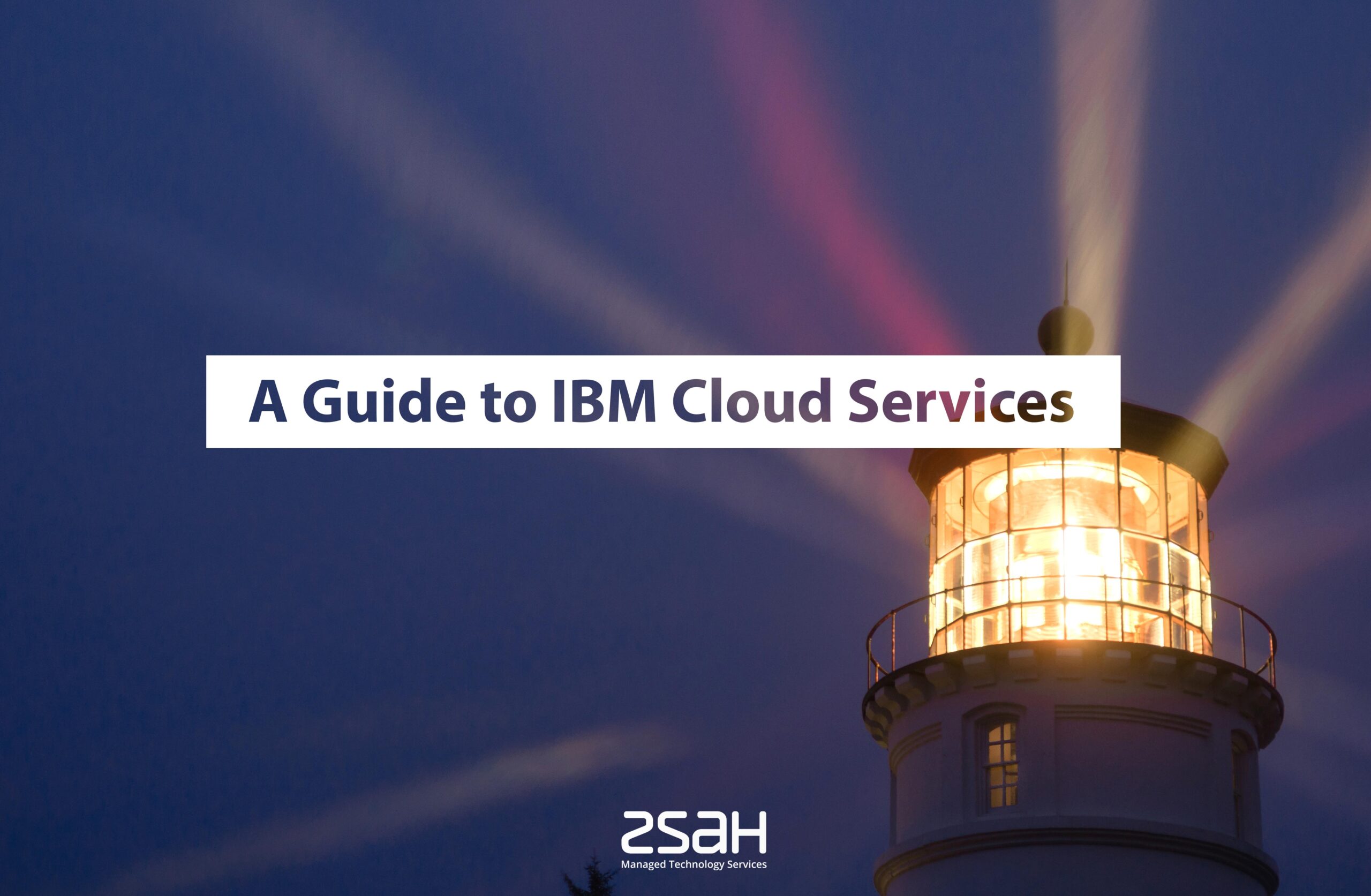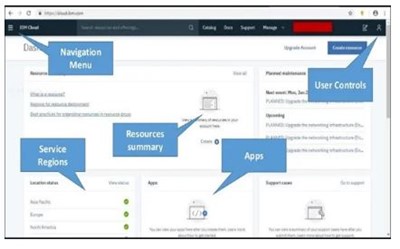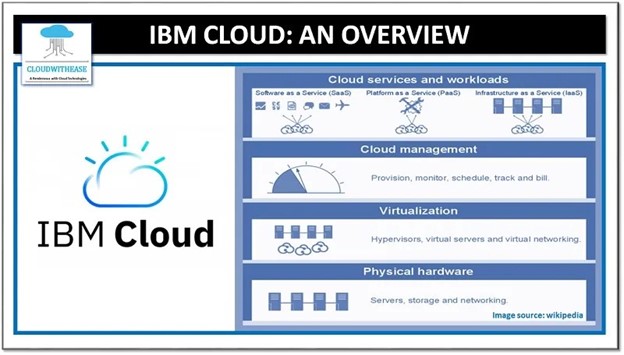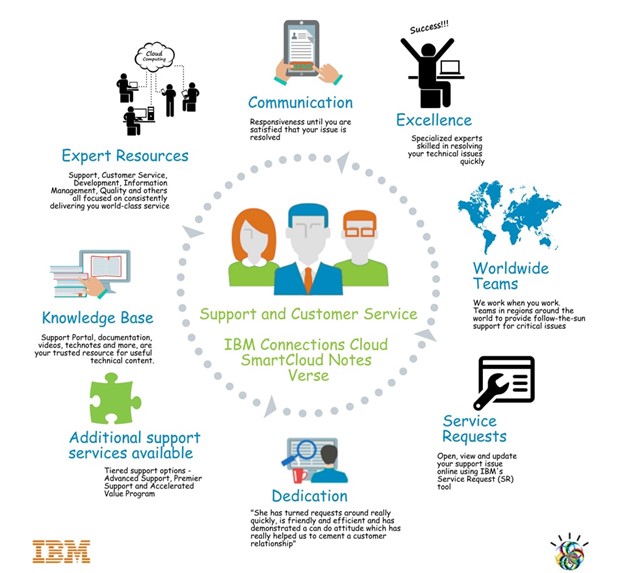An Introduction to IBM Cloud

IBM Cloud (formerly known as IBM Bluemix and IBM SoftLayer) is a suite of cloud computing services that offers both Platform as a Service (PaaS) and Infrastructure as a Service (IaaS). It is currently one of the top five cloud service providers in the world.
At present, it holds a global market share of 3%. This puts IBM Cloud in fifth position worldwide, behind Google Cloud Platform (at 11%), Microsoft Azure (21%), Amazon Web Services (34%), and Alibaba Cloud (5% market share).
IBM Cloud has achieved this position through a combination of its own long-standing experience and reputation in the IT business, extensive links with organisations in a wide range of industries, and the provision of a comprehensive selection of cloud services, tools, and infrastructure.
IBM Cloud History
IBM acquired SoftLayer, a public cloud platform, in 2013, to serve as the foundation for its Infrastructure as a Service offering. IBM added Platform as a Service to the mix in 2016, when it rolled the SoftLayer brand under its own Bluemix brand. IBM rebranded its entire cloud portfolio as IBM Cloud in 2017.
Image source: Cloudwithease]
To create an IBM Cloud account, you first need to go to the IBM Cloud Login website and enter your IBMid email address. If you don’t have one of these already, an ID will be created based on the valid email address that you enter.
To enable a cloud connection to IBM Cloud, you can use the IBM management GUI or command-line interface. If a DNS server is not already configured on the system, enter the IP address and name of the server that converts the host name of the cloud service provider to IP addresses for the system.
Note that you cannot configure encryption after the IBM Cloud account is created. Before proceeding, you should therefore ensure that you understand the security considerations relating to cloud storage and encryption, when planning for transparent cloud tiering.
[Image source: Cloudwithease]
IBM Cloud’s Infrastructure as a Service offerings enable organisations to deploy and access virtualized IT resources such as compute power, storage and networking over the internet. Subscribers can choose between bare-metal or virtual servers for their computing needs.
The IBM Cloud PaaS (Platform as a Service) offering is based on the open source cloud platform Cloud Foundry. This allows developers to use IBM services to create, manage, run and deploy various types of applications for the public cloud, in addition to local or on-premises environments. There’s support for various programming languages, such as Java, Node.js, PHP and Python.
The IBM Cloud platform supports access to other IBM tools and services, such as IBM Watson and IBM Cloud Functions for serverless computing. The platform also supports access to tools and services from third-party vendors.
The IBM Cloud core offering consists of a full stack cloud platform with over 170 products and services covering data, containers, AI, IoT, and blockchain. IBM Cloud services are grouped into 16 categories, which include the following:
AI and Machine Learning
IBM Cloud users have the option to build their own machine learning models, or to use IBM Watson.
Subscribers who choose Watson have an ecosystem of tools and functions at their disposal. These include IBM Watson Assistant, which provides virtual agents that users can customize for any domain, and IBM Watson Discovery – a search and analytics engine that adapts to custom domains. The IBM Watson Knowledge Studio is a visual interface that teaches Watson domain-specific knowledge
The IBM Watson Knowledge Catalog provides a Software as a Service (SaaS) environment for AI data management, while the IBM Watson Studio is an Integrated Development Environment (IDE) for creating, running and managing AI models.
With generative AI and Natural Language Processing (NLP) now high on the agenda for many organisations, IBM Cloud’s AI and machine learning services provide extensions for Watson in this area as well.
The IBM Watson Language Translator is an Application Programming Interface (API) for translation with domain-specific models, and the IBM Watson Natural Language Classifier provides a visual tool and API for text classification. IBM Watson Natural Language Understanding provides an API for text analysis and metadata extraction.
At the user level, there’s IBM Watson Speech to Text – an API for real-time speech recognition and transcription. IBM Watson Text to Speech provides an API for real-time text to speech conversion.
Analytics
The IBM Cloud Analytics offering includes a range of data science tools, together with analytics services for streaming data.
The IBM Cloud Pak for Data offers tools for data analysis, organization, and management. IBM Analytics Engine is a Platform as a Service (PaaS) offering that enables users to build analytics applications on Apache Spark and Hadoop. IBM Master Data Management on Cloud provides managed master data storage, while IBM Streaming Analytics is a dashboard for real-time analysis of data streams.
IBM Cloud’s Analytics offering also facilitates integration with other cloud environments. Notably, IBM Db2 Warehouse on Cloud offers a managed data warehouse on IBM Cloud or Amazon Web Services (AWS). IBM InfoSphere® Information Server on Cloud provides a data integration suite for Extract, Transform, Load (ETL), governance, and analysis.
Automation
Here, IBM Cloud Pak furnishes the principal suite of tools and services for automating business processes and workflows.
IBM Cloud Pak for Business Automation provides operations management software with AI insights, while IBM Cloud Pak for Integration is an AI-powered integration software solution for connecting apps and data across any cloud.
IBM Cloud Pak for Network Automation provides management software for operations on telecommunications networks, and the IBM Cloud Pak for Watson AIOps is a DevOps management tool with AI analysis and recommendations.
As an additional resource, IBM Cloud offers IBM Turbonomic® Application Resource Management, a software tool that automates application resource management and optimizes costs.
Blockchain
IBM's Blockchain Platform is a Software as a Service (SaaS) offering that enables subscribers to develop apps, enforce governance, and monitor a blockchain network. The IBM Cloud Blockchain Software Development Kit (SDK) is based on Hyperledger Fabric.
Compute
IBM Cloud offers a variety of compute resources for enterprises to host their workloads, including bare-metal servers, Virtual Machines (VMs), and serverless computing.
IBM Cloud Bare Metal Servers provide dedicated hardware for maximum computing performance, while the IBM Cloud for VMware Solutions offers hosting for virtualized workloads. IBM Cloud Virtual Servers for Classic Infrastructure offer the most flexible configuration options, and IBM Cloud Virtual Server for VPC provides virtual servers with enhanced network security.
For serverless environments, IBM Cloud Code Engine is a Platform as a Service offering for serverless container hosting.
In addition, IBM WebSphere Application Server on Cloud provides a runtime environment and Software Development Kit (SDK) for Java applications. For virtual desktop environments, Dizzion Managed DaaS on IBM Cloud offers a managed Desktop as a Service for virtual desktops in the cloud.
Containers
The IBM Cloud Kubernetes Service provides container hosting with self-healing and horizontal scaling. The platform gives user access to the Container Registry, a Software as a Service (SaaS) offering for container storage and management.
Istio provides a service mesh for microservices in Kubernetes clusters, while Red Hat® OpenShift® on IBM Cloud offers container hosting on managed Red Hat Linux servers.
Databases
For the storage and analysis of structured data, IBM Cloud offers a variety of SQL and NoSQL databases, as well as data querying, warehousing and migration tools.
Examples include IBM Cloud Databases for EnterpriseDB, a managed SQL database, and IBM Cloud Databases for MongoDB, a managed NoSQL JSON document store. IBM Informix® on Cloud offers a managed database for time series, spatial, NoSQL and SQL data.
Developer Tools
IBM Cloud CLI provides a Command Line Interface for developers to manage their IBM Cloud infrastructure. IBM Cloud Continuous Delivery provides a User Interface (UI) and CLI based DevOps workflows based on Tekton Pipelines. IBM Cloud App Configuration offers a Software Development Kit, dashboard and API for application feature management.
Other development tools on offer include IBM Cloud Messages for RabbitMQ, a managed message broker, IBM Cloud Schematics, a managed service to provision resources with terraform templates, and IBM Cloud Data Engine, a serverless, interactive querying service for analyzing object storage data.
Internet of Things (IoT)
The IBM IoT Platform provides services to connect and manage IoT devices, and tools for analysis of the data they produce.
For edge cloud network management (a key requirement for speedy and responsive IoT deployments), IBM Edge Application Manager provides an autonomous management platform for edge computing.
For IoT asset management, IBM Maximo Application Suite: Remote Monitoring enables system managers to see, predict and prevent issues, using advanced AI-powered remote monitoring and computer vision for assets and operations.
Quantum Computing
IBM Cloud’s Quantum computing offering includes services and tools that enable organisations to run code on real quantum systems using a full-stack Software Development Kit (SDK). For example, Qiskit provides a Python SDK for open-source quantum development, while Qiskit Runtime offers a low-latency execution environment for quantum programs.
Security
The IBM Cloud Security portfolio includes services for activity tracking, identity and access management, and authentication. These include IBM Cloud App ID, a compliant authentication, authorization and user data SaaS, IBM Cloud Secrets Manager, a single-tenant, dedicated instance for managing secrets, and IBM Cloud Pak for Security, which provides tools for security auditing, reporting, analysis, and governance.
In addition to the above categories, IBM Cloud has infrastructure and service offerings that cover Networking, Logging and Monitoring, Integration, and Storage.
Pricing Considerations for IBM Cloud Users
A number of factors will contribute to the actual cost of an IBM Cloud deployment, including resource usage, deployment model, and support levels. As of 2022, IBM Cloud has been offering two main pricing models.
IBM Cloud's pay-as-you-go (PAYG) accounts are billed monthly, based on resource consumption. By default, all new accounts are automatically created as pay-as-you-go plans.
For organisations willing to commit to a minimum amount of spending, the second pricing model is a subscription account. Here, larger monthly spending commitments earn bigger discounts.
There’s an IBM Cloud pricing calculator available, to help organisations estimate expenditure before committing to a particular type of plan.
[Image source: CloudCompanions]
IBM Cloud is available in data centers worldwide, with coverage that extends across regions in North and South America, Europe, Asia, and Australia. Its next-generation hybrid cloud platform, deep enterprise expertise and advanced data and AI capabilities span 20 industries.
This combination of factors enables IBM Cloud to claim with some justification to offer the most open and secure public cloud for business. Its integrated offering combines Platform as a Service (PaaS) with Infrastructure as a Service (IaaS) to provide a solution that scales and supports both small development teams and organisations, and large scale enterprises.
IBM Cloud offers three deployment models.
- IBM Cloud Public is a public cloud which provides access to virtual servers in a multi-tenant environment. Organisations can choose to deploy applications in one or multiple geographical regions.
- IBM Cloud Dedicated is a single-tenant private cloud that IBM hosts in one of its data centers. Enterprises can connect to the environment using a direct network connection or VPN, leaving IBM to manage the platform.
- IBM Cloud Private allows an organization to deploy the IBM platform as a private cloud in its own data center behind a firewall.
Using IBM Cloud’s optimized risk controls, organisations can deploy customized security and compliance controls across enterprise and third-party ecosystems – in the knowledge that they are using a platform that was built with the technology and business needs of the most highly regulated industries in mind.
IBM Cloud competitors include:
- Alibaba Cloud
- Amazon Web Services (AWS)
- Google Cloud Platform (GCP)
- Microsoft Azure
- SAP Cloud Platform
Each cloud provider has its strengths and specialities that can make it suitable for different businesses or purposes.
Sign Up Now!
For expert advice and resources – blogs, interviews, webinars, guides and more.




